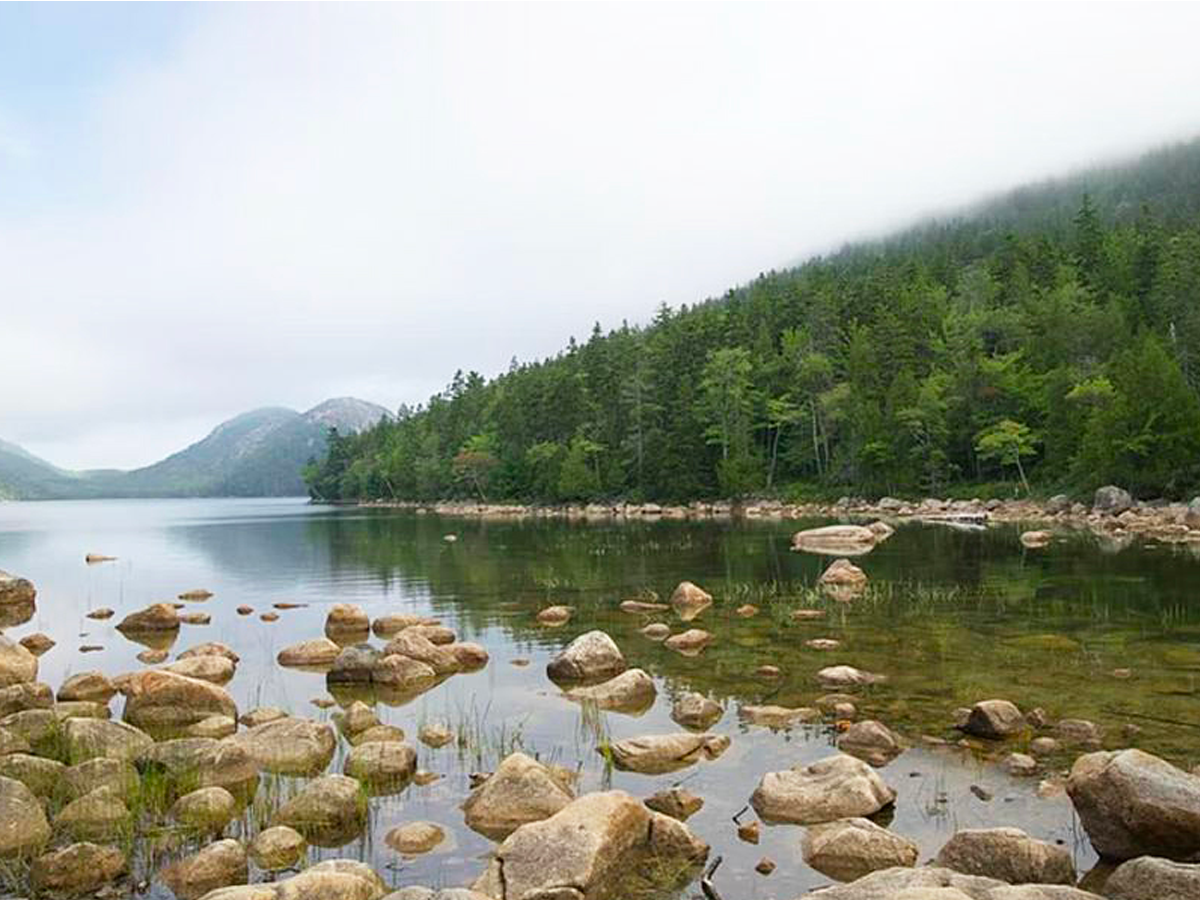Let's Be Clear
Clean Lakes are good for Maine's environment and economy.
Maine’s 6,000 lakes and ponds are a beloved feature of our state, providing beautiful vistas and landscapes, peaceful places to hear majestic loons calling, and many generations of priceless memories “upta camp.”
But Maine’s lakes, especially those with clean, clear water, are also a strong economic driver. A recent study by researchers at the University of Maine estimates the value of Maine’s lakes to be $14.1 billion, with an additional $3 billion in related spending each year.

Net Economic
Value ($/year)
Lakefront Property
$13 Billion
Lakefront Summer Camps
$15 Million
Lake Recreation
$501 Million
Water Consumption
$334 Million
Total
$14.1 Billion
Direct Expenditures and Direct/Indirect Sales ($/yr)
Lakefront Property
$865 Billion
Lakefront Summer Camps
$1326 Million
Lake Recreation
$1.6 Billion
Water Consumption
$241 Million
Total
$3 Billion

Investing in lake protection has never been more
important for Maine’s environment and economy.
Why are lakes at risk?
Maine’s lakes are increasingly at risk from new environmental and development pressures. Climate change is raising water temperatures, lengthening growing seasons, and fostering more intense storms that carry more stormwater runoff into lakes. These conditions fuel algae growth, invasive species spread, and public health risks. More people moving to Maine’s lakeshores, especially since the pandemic, has increased development pressure and demands on lakeshore properties throughout the state.
How do we measure economic impact?
Researchers at the University of Maine used data from a wide variety of sources along with a survey of 768 Mainers to determine estimates for both economic value and annual spending in four lake-related sectors (lakefront summer camps, lakefront property, recreational lake use, and lake-based public drinking water sources). The total value across the sectors is $14.1 billion, with value de ned as the benefit generated above and beyond what we spend to travel to and use lake-resources, while the annual spending (both direct and indirect) totals another $3 billion.
Lakefront Property
The $13.3 billion in cumulative value of Maine’s lakefront property (and the $865 million in spending) is influenced by water quality. A one-foot decrease in water clarity (generally associated with nutrient and other pollution) will decrease the value of Maine homes located within 1,000 feet of the lakeshore by an average of 1.1%. For towns like Belgrade that generate most of their tax revenue from shorefront properties, a decline in water quality will result in major losses in that revenue.
Estimate based on hedonic pricing analysis applied to sales data for lakefront homes purchased between 2017 and 2022.
Lakefront Summer Camps
The 145 summer camps in Maine serve 60,000 campers from in and out of state each summer. The 75% of these camps that are located on lakes are valued at $15 million. Estimates of direct spending (fees and travel costs for families and campers) are at least $170 million per year, with additional indirect spending totaling another $156 million.
Estimate based on average cost per camper per week plus estimated travel expenditures to and from camp.
Water Consumption
Maine’s lakes supply clean drinking water to more than half of the state’s population, generating $126 million in revenue each year. Maine holds 20% of all EPA filtration waivers in the country, meaning that our lake water quality is high enough to drink safely without filtration. Degradation of surface water sources can be costly for towns and taxpayers. Declining water quality in Lake Auburn in 2023 put the city of Auburn at risk of losing its waiverand of having to construct a $35 million filtration plant instead.
Estimate based on 2020 Annual Reports to the Maine Public Utilities Commission.
Lake Recreation
The value of Maine’s lakes for recreation, based on survey responses about trips to participate in activities such as swimming, boating, and fishing, totals $501 million each year, with another $1.6 billion in direct/indirect expenditures/sales. Recreationists report good water quality and safety from bacterial contamination as the most important considerations when choosing a lake destination. A moderate decline in water quality is predicted to reduce total recreation use value by 6% or $33 million per year.
Estimate based on 768 respondents to a 2023 lake use and expenditure survey.
support strong policies for lake protections
- Support shoreland zoning rules that protect shoreline health and water quality.
- Support lake funding bills that bring needed revenue to ght invasive species spread and treat harmful algal blooms.
- Support common-sense regulation of boating, shing, and other recreational activity that prioritizeslake and habitat protection.
Sign up for Maine Lakes’ Legislative Alerts to learn more. For a list of current lake-related bills in the Maine Legislature, visit here.
Other resources
Flyer: Let's Be Clear. Clean Lakes are Good for Maine's Environment and Economy
Executive Summary Webpage: Valuing the Economic Benefits of Maine’s Great Ponds in the 21st Century, Dr. Adam Daigneault, Melissa Genoter, Dr. Jianheng Zhao, Dr. Keith Evans, University of Maine, Susan Gallo, Maine Lakes,, Linda Bacon, Maine Department of Environmental Protection, April 1, 2024
Poster: Communicating the Value of Maine Lakes, Melissa Genoter, University of Maine,, School of Forest Resources & Ecology and Environmental Science Program
Slideshow: Valuing the Economic Benefits of Maine’s Great Ponds in the 21st Century, Dr. Jianheng Zhao, Dr. Adam Daigneault, Dr. Keith S. Evans, Melissa Genoter, University of Maine, Susan Gallo, Maine Lakes, Linda Bacon, Maine Dept. of Env. Protection
Great Ponds Play an Integral Role in Maine's Economy. 1997. Boyle, K, J Schuetz, and JS Kahl. Water Research Institute, University of Maine. REP473.

